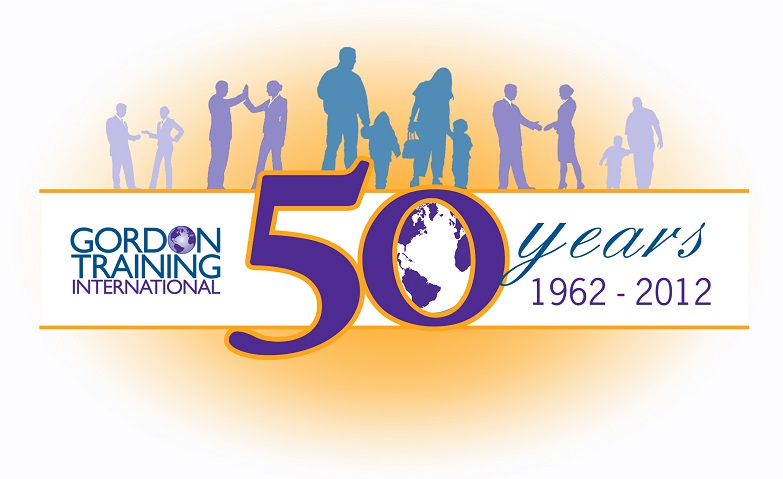A New Year’s Approach to Parenting Problems
Don’t know how I missed this book but I have finally started M. Scott Peck’s The Road Less Traveled.
If you read it pre-kids, you might not have caught all the parenting stuff in it. I'm only on the 7th chapter but my take-away so far is my two-part New Year resolution.
Part 1: Welcome problems
Peck says problems and pain are the stuff of growth. This is not news to me. There are so many sayings in line with this, such as What doesn't kill you, makes you stronger.
But I started thinking about parenting pain in particular. I think most of us can accept discomfort and struggle in many arenas -- a hard work out, a longer than expected hike, even a tough manager who asks a lot -- but there's an added level of resistance when it comes to raising kids.
I suspect that, though we may pay lip service to the idea that Parenting is HARD, deep down, most of us still believe that it shouldn’t be.
Or, worse, that it wouldn’t be if our children were just different. At a holiday gathering, I shared with a mom how there came to be a lot more peace in our family; she just shrugged and quipped, “You don’t have my children.” There's a lot of blaming that can go on.
I think family struggles are especially painful because they involve confrontation and conflict with young people whom we love desperately. Seriously, pain in a bubble would be so much easier!
And so we'd just rather not, thanks. Or we will settle for a haphazard solution in the moment that doesn't address underlying needs. We may start feeling helpless, or hopeless.
Peck challenges us to take an entirely different attitude:
“As Benjamin Franklin said, ‘Those things that hurt, instruct.’ It is for this reason that wise people learn not to dread but actually to welcome problems and actually to welcome the pain of problems.””
Taking it further, Thomas Gordon, the founder of P.E.T., urges parents to rethink our aversion and instead see conflict as a teaching opportunity:
"Most parents hate to experience conflict, are deeply troubled when it occurs, and are quite confused about how to handle it constructively. Actually, it would be a rare relationship if over a period of time one person's needs did not conflict with the other's . . . As necessary preparation for the inevitable conflicts the child will encounter outside of the home, family conflict may actually be beneficial to the child, always provided that the conflict in the home gets resolved constructively."
-- Parent Effectiveness Training: The Proven Program for Raising Responsible Children, pages 172-173
So for Part 1, I resolve to try opening my arms to problems and the pain they may bring.
Now, about the timing . . .
Part 2: Address problems early on
Peck sees parenting for what it is -- energy-consuming and "every bit as complex as directing a company or a corporation." (page 32) He does not judge or wonder at our tendency to shy away from thorny family issues: "Who among us can say that they unfailingly devote sufficient time to analyzing their children's problems or tensions within the family?" (page 30)
It's hard to be proactive. Period. Full stop. (I've started a series of blogposts on this very phenomenon.)
Most of us wait until we are backed into a corner because we harbor a teeny, tiny hope:
“To willingly confront a problem early, before we are forced to confront it by circumstances, means to put aside something pleasant or less painful for something more painful. It is choosing to suffer now in the hope of future gratification rather than choosing to continue present gratification in the hope that future suffering will not be necessary.””
And yet, Peck has an important message for those of us us who, consciously or not, have put problems onto the back burner: They're not going anywhere.
Sure, in a nod to how hard it is to make judgment calls as a parent, he admits that children do grow out of some issues. He maintains, however, that there's a very good chance they won't and that addressing them early never hurts.
Putting them off, though, can: "[A]s with so many problems, the longer children's problems are ignored, the larger they become and the more painful and difficult to solve." (page 32)
So, Part 2 is asking the tried and true Who Owns The Problem? earlier rather than later and then doing something about it.
Case in Point
I've been aware for a while of a certain conflict in our family but with the holidays and all (i.e. other excuses), I have not yet addressed it.
Our eldest, who is in his last year of high school, very much hopes to go on a graduation trip with his friends to Koh Samui, Thailand. The percentage of classmates who go each year is unclear, but it's over half.
To THAILAND!
A week of sun and fun. No adults. Paid for by adults.
Now, I am a small-town Connecticut girl who sold oranges for four years with the French Club to raise money for a Paris trip my senior year. My husband shares my strong desire to ground our kids as much as possible. Goodness knows they've been afloat in too many ways with a lifestyle we never imagined (but did, nevertheless, create these past eight years as American expats in Hong Kong).
We have briefly expressed our unwillingness to send him on this vacation and Harrison was not happy.
I commit now to reopen the issue forthwith. (By the way, Harrison approved this post and we're scheduled to talk tonight!) Why let him ache, burn or seethe for three or four months whenever the topic comes up at school? I see only a downside to waiting.
My husband really doesn't want to have this conversation yet. That's ok. I chose this New Year's resolution. I have my own work to do overcoming my favorite avoidance strategies: retreating to my desk, reading, checking Facebook or rummaging through my to organize in a free moment basket of things.
So I plan to start one on one with a Declarative I-Message: "I'm aware of something that's unresolved still and believe the earlier we discuss it the better for our relationship."
Then, once I have his attention, I can share a three-part Confrontive I-Message: "When I consider you going to Koh Samui with your friends (behavior), I feel nervous and dismayed (feelings) and even incompetent as a parent in sharing and passing on values I think are really important (effects)."
I will be in for some resistance so I will be ready to Shift Gears to Active Listen before saying more. As I get to hear Harrison's point of view, and he has a chance to understand mine, I hope to grow closer and avoid a rift that might happen if we wait until exams are over, he sees his buddies packing and his pent-up frustration and unheard perspective boil over.
I can then report back what I've learned, discuss it with hubby, and take it from there. At some point, all three of us might decide to do a Method III Problem-solve. We can put our heads together to meet our needs (understanding, respect, mattering, efficacy) as well as his (I'm guessing belonging, connection, fun). We want to Consult too on our values; that is, explain how self-restraint, self-sufficiency and living within one's means will serve him as he goes out in the world.
So that's what I hope for myself and my family in 2016. I’m going to cultivate a warmer attitude toward any tensions and then act to make things right with the ones I love.
May 2016 brings about positive change to you and yours as well! Thank you so much for reading.
Love,
Catherine
Credits: Road less traveled photo (http://farm3.static.flickr.com/2377/1849623923_50ce170eea.jpg); What doesn't kill you makes you stronger (https://s-media-cache-ak0.pinimg.com/736x/d4/6e/10/d46e106e4b6d39738ea9592ee730305f.jpg)





